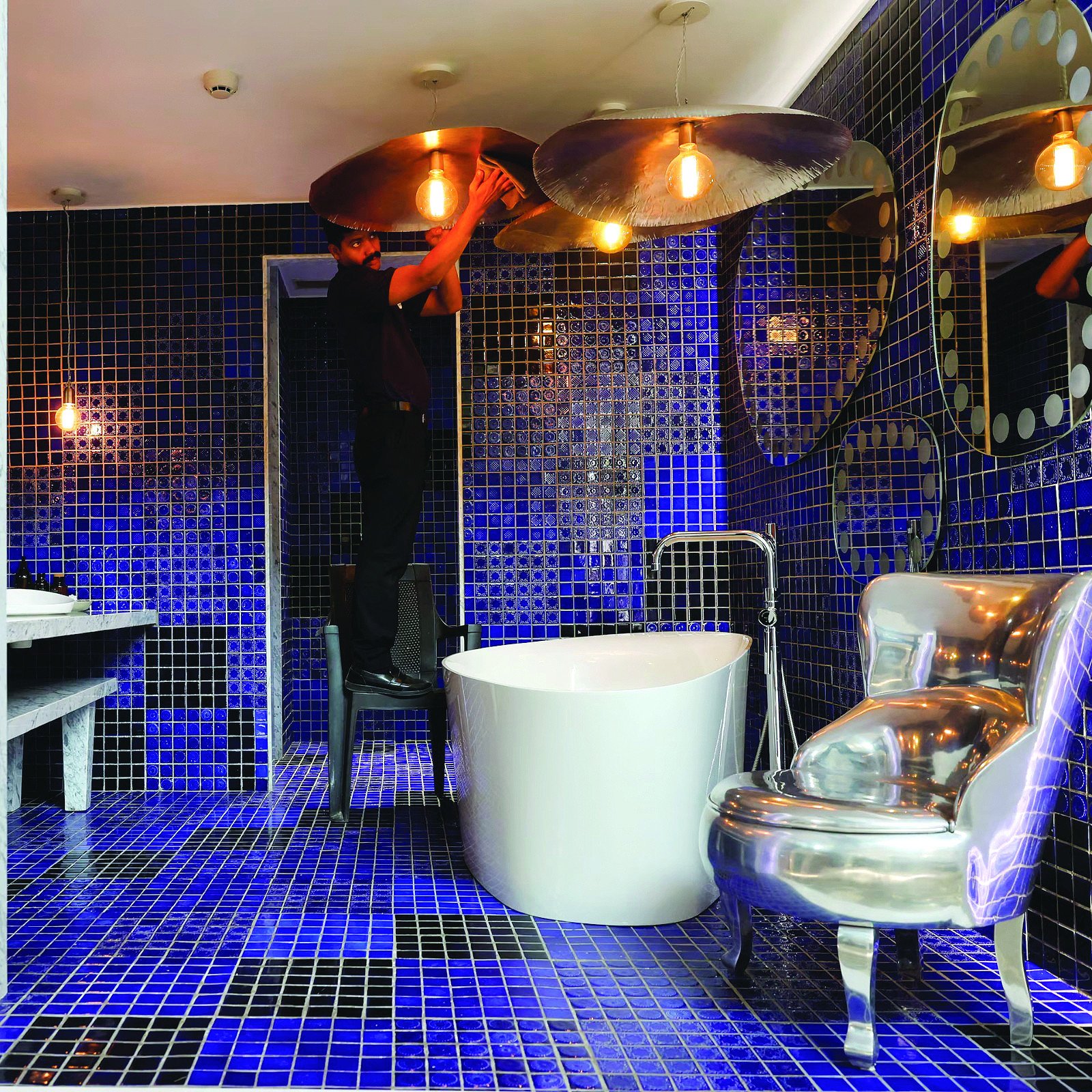
In India's polluted northern city of Kanpur, Rajat Ghai has a penchant for Rado watches and Louis Vuitton shoes. Now, as the 31-year-old entrepreneur builds his dream home, he is indulging his designer tastes with a luxury bathroom.
Ghai will spend $28,000 on designer fittings from American giant Kohler and Japan's Toto, installing a jacuzzi bathtub, showers with steam features and a multifunctional toilet with a heated, temperature-control seat and an automatic deodoriser.
"Japan's toilets are so futuristic and hygienic, it was like we were in a different world. I wanted to bring that experience home," said Ghai, recalling a visit to Japan that inspired his purchase.
"I really spend time here, I can relax, I can be with myself. So I want it to be cosy and relaxed."
India is emerging as a hotspot for Kohler, Toto and Hansgrohe, the German manufacturer renowned for its taps and showers. The bathroom hardware companies are planning more stores, striking deals with developers and stepping up production in the world's most populous nation as incomes grow.
UBS says that by 2028 India will have some 1 million millionaires, more than in Singapore, Hong Kong or Brazil. In some ways, the luxury boom is emblematic of India's divides.
The World Bank's most recent estimates – from 2022 – showed 11 per cent of India's population still defecated in the open.
But even as millions of Indians cut spending in the face of inflation, the newly rich are not afraid to splurge. Indian sales of Mercedes-Benz cars hit a record high last year and so did deals for multimillion-dollar apartments in big and smaller cities.
Luxury homes accounted for 26 per cent of total residential sales last year, more than three times the level of 2020, according to Mumbai-based Anarock Property Consultants.
The homes are mostly apartments in gated communities in India's seven biggest cities that are priced above 15 million rupees ($173,000).
Kohler currently has three "experience centres" in India where customers can test water temperature settings and shower pressure. It plans to open similar outlets across the major cities – potentially making India one of the biggest hubs for such centres – as well as many smaller stores.
"People are getting a lot more home proud than what they were before. They want to make sure they are spending more money on this entire sanctuary at home," said Ranjeet Oak, Kohler's managing director for South Asia.
Kohler describes India as its fastest growing market globally. Local sales rose to around $230 million in 2023-24, representing a compound annual growth rate of 17 per cent from 2019, regulatory records show. Net profit grew by an annual average of about one-third over the same period.
'Comfortable cleaning sensation'
Even with India's growth, China remains a bigger bathroom market, according to data from research firm Statista. It expects the Chinese market to expand about 11 per cent over the five years to 2029 to $42.7 billion.
India, meanwhile, is set to grow by about 9 per cent over the same period to $12 billion.
In a statement, Toto said rising incomes and aspirations had driven demand for its bathroom products in India's large cities. It added that it would expand its dealer network by a third to 160 by 2025-26, especially in smaller cities "to grow our reach". For Kohler and Hansgrohe, the experience centres are at the heart of their strategy.
Located inside an old mill, Kohler's outlet in Mumbai, a city infamous for slums that lack basic sanitation, is spread across 16,000 square feet, making it as big as three basketball courts.
On display inside are a 1.6 million-rupee ($18,500) Alexa-powered toilet with inbuilt tunes of chirping birds and a $5,800 wash basin decorated with hand-painted designs featuring a choice of Indian forts or jungle wildlife.
Hansgrohe will also open its first experience centre in New Delhi this year.
It already has 250 outlets in India, but will increase that to 400 by 2026, said Thomas Stopper, the company's Asia vice president. Reuters





1737702954-0/fizza-(93)1737702954-0-165x106.webp)
1737702651-0/Express-Tribune---News-Desk-(1)1737702651-0-270x192.webp)

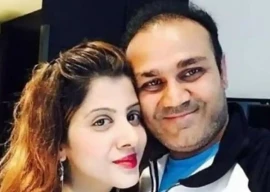


1737680586-0/Hamza-(1)1737680586-0-270x192.webp)
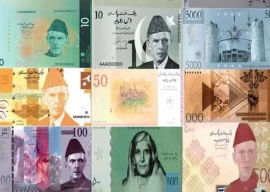

1737614355-0/Express-Tribune-(1)1737614355-0-270x192.webp)
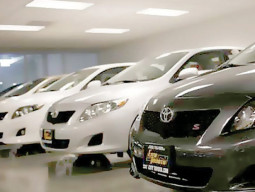
1737546248-0/Waqas-(13)1737546248-0-270x192.webp)
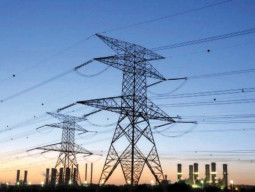






COMMENTS
Comments are moderated and generally will be posted if they are on-topic and not abusive.
For more information, please see our Comments FAQ